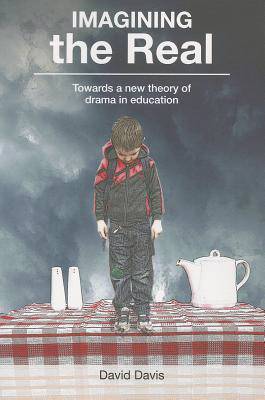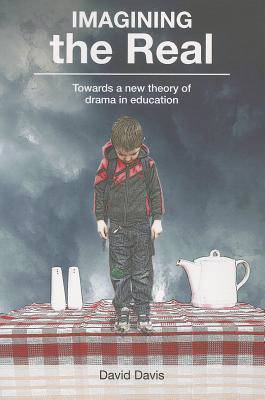
Door een staking bij bpost kan je online bestelling op dit moment iets langer onderweg zijn dan voorzien. Dringend iets nodig? Onze winkels ontvangen jou met open armen!
- Afhalen na 1 uur in een winkel met voorraad
- Gratis thuislevering in België vanaf € 30
- Ruim aanbod met 7 miljoen producten
Door een staking bij bpost kan je online bestelling op dit moment iets langer onderweg zijn dan voorzien. Dringend iets nodig? Onze winkels ontvangen jou met open armen!
- Afhalen na 1 uur in een winkel met voorraad
- Gratis thuislevering in België vanaf € 30
- Ruim aanbod met 7 miljoen producten
Zoeken
€ 34,95
+ 69 punten
Omschrijving
The current education climate has brought the development of classroom drama as an art form to a standstill. Practitioners need to make a qualitative leap forward in both theory and practice in order to respond to the cultural demands of the times.
By linking the best of the ground-breaking work of Dorothy Heathcote and Gavin Bolton with the pioneering developments in theatre form by the playwright Edward Bond, David Davis identifies a possible way forward. In part one he critiques present drama in education - Mantle of the Expert approaches, conventions drama forms and post-dramatic theatre. In part two he restates and develops the best practice of the last fifty years, centering on the key importance of 'living through' drama. In part three he applies the new drama/theatre form of Edward Bond to begin building a new theory of drama in education and so transform classroom practice.
Imagining the Real will be essential reading for drama students at first and higher degree level, students on initial courses of teacher education, drama teachers, lecturers in higher and further education and theatre workers generally.
By linking the best of the ground-breaking work of Dorothy Heathcote and Gavin Bolton with the pioneering developments in theatre form by the playwright Edward Bond, David Davis identifies a possible way forward. In part one he critiques present drama in education - Mantle of the Expert approaches, conventions drama forms and post-dramatic theatre. In part two he restates and develops the best practice of the last fifty years, centering on the key importance of 'living through' drama. In part three he applies the new drama/theatre form of Edward Bond to begin building a new theory of drama in education and so transform classroom practice.
Imagining the Real will be essential reading for drama students at first and higher degree level, students on initial courses of teacher education, drama teachers, lecturers in higher and further education and theatre workers generally.
Specificaties
Betrokkenen
- Auteur(s):
- Uitgeverij:
Inhoud
- Aantal bladzijden:
- 200
- Taal:
- Engels
Eigenschappen
- Productcode (EAN):
- 9781858565132
- Verschijningsdatum:
- 15/09/2014
- Uitvoering:
- Paperback
- Formaat:
- Trade paperback (VS)
- Afmetingen:
- 155 mm x 231 mm
- Gewicht:
- 362 g

Alleen bij Standaard Boekhandel
+ 69 punten op je klantenkaart van Standaard Boekhandel
Beoordelingen
We publiceren alleen reviews die voldoen aan de voorwaarden voor reviews. Bekijk onze voorwaarden voor reviews.











